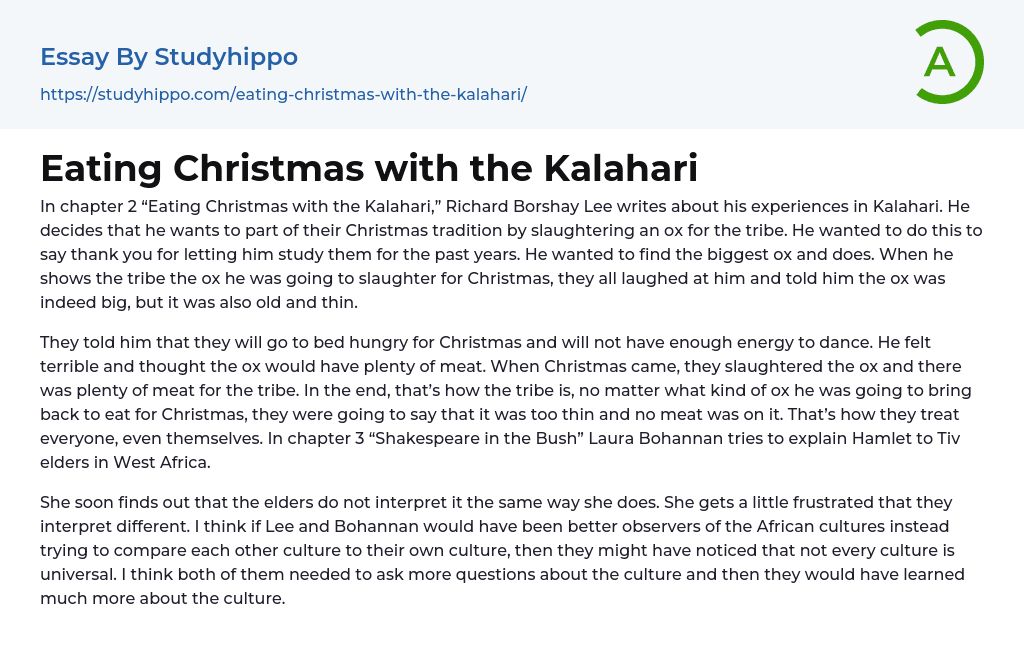In chapter 2 “Eating Christmas with the Kalahari,” Richard Borshay Lee writes about his experiences in Kalahari. He decides that he wants to part of their Christmas tradition by slaughtering an ox for the tribe. He wanted to do this to say thank you for letting him study them for the past years. He wanted to find the biggest ox and does. When he shows the tribe the ox he was going to slaughter for Christmas, they all laughed at him and told him the ox was indeed big, but it was also old and thin.
They told him that they will go to bed hungry for Christmas and will not have enough energy to dance. He felt terrible and thought the ox would have plenty of meat. When Christmas came, they slaughtered the ox and there was plenty o
...f meat for the tribe. In the end, that’s how the tribe is, no matter what kind of ox he was going to bring back to eat for Christmas, they were going to say that it was too thin and no meat was on it. That’s how they treat everyone, even themselves. In chapter 3 “Shakespeare in the Bush” Laura Bohannan tries to explain Hamlet to Tiv elders in West Africa.
She soon finds out that the elders do not interpret it the same way she does. She gets a little frustrated that they interpret different. I think if Lee and Bohannan would have been better observers of the African cultures instead trying to compare each other culture to their own culture, then they might have noticed that not every culture is universal. I think both of the
needed to ask more questions about the culture and then they would have learned much more about the culture.




